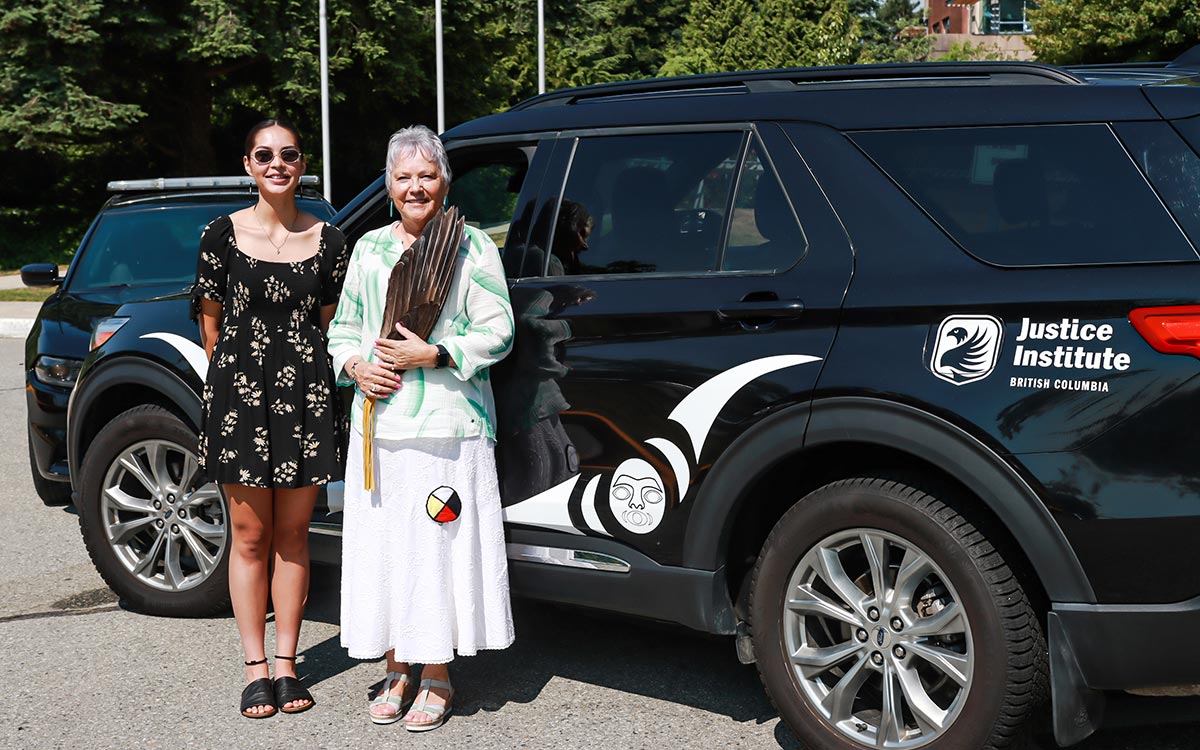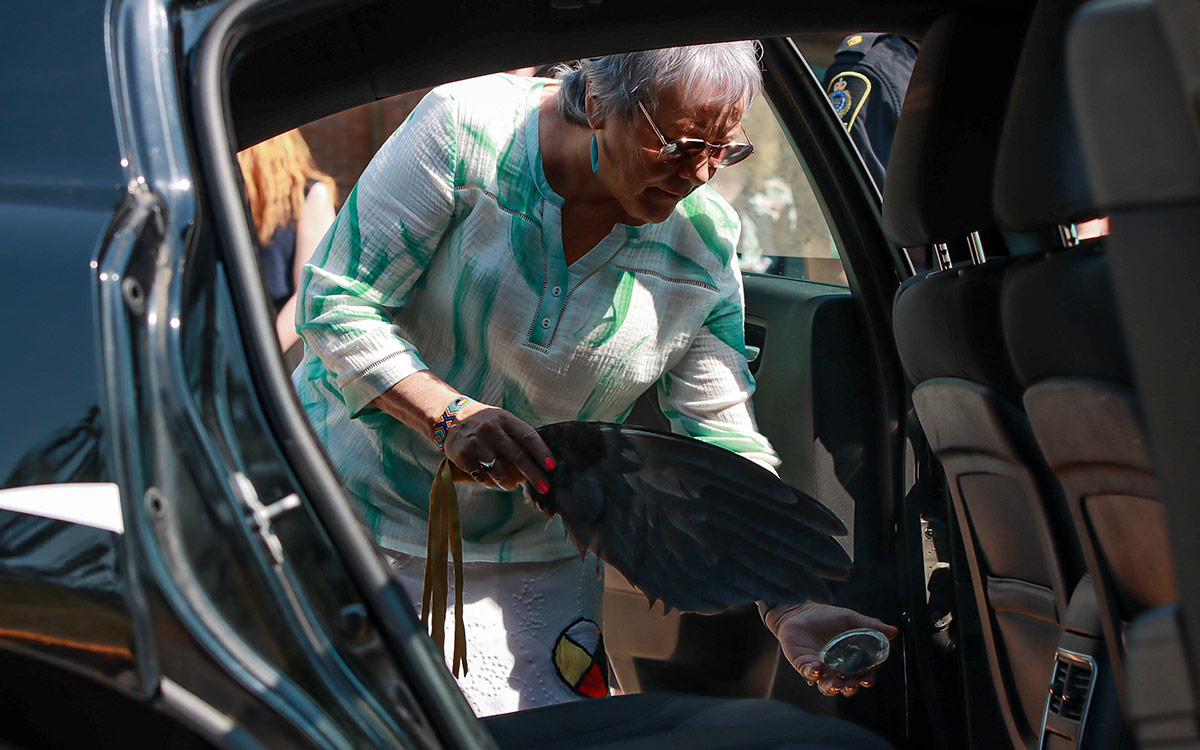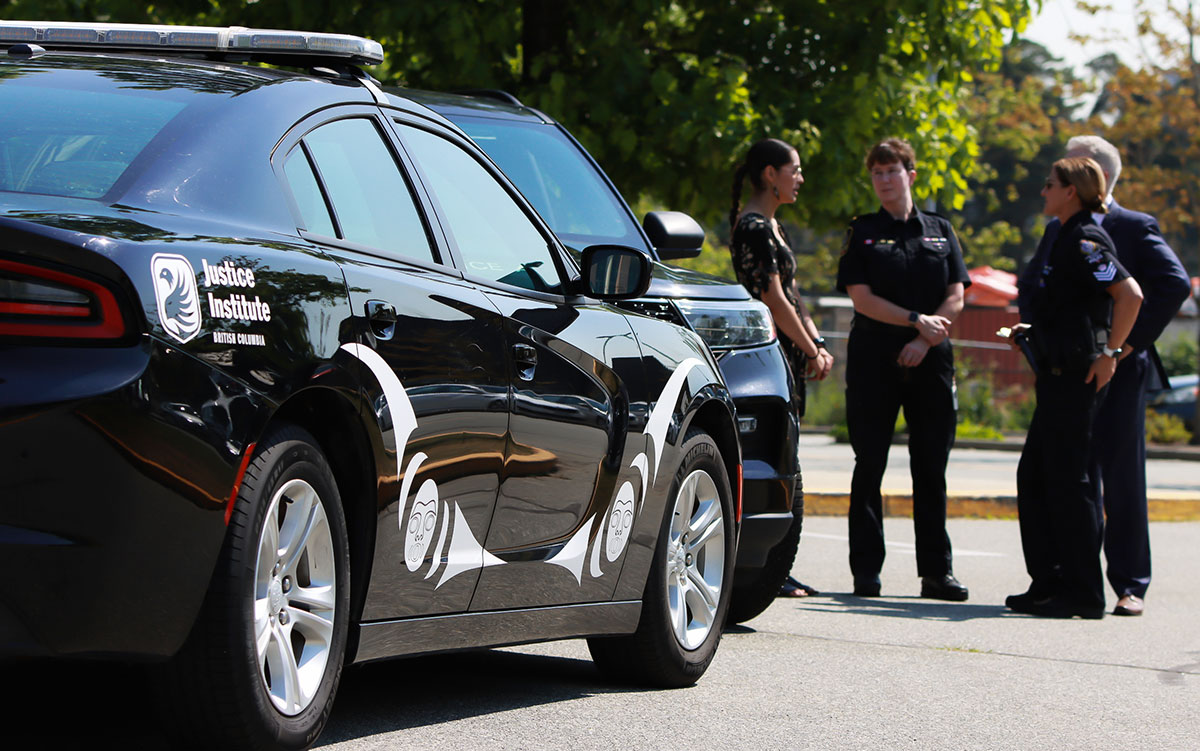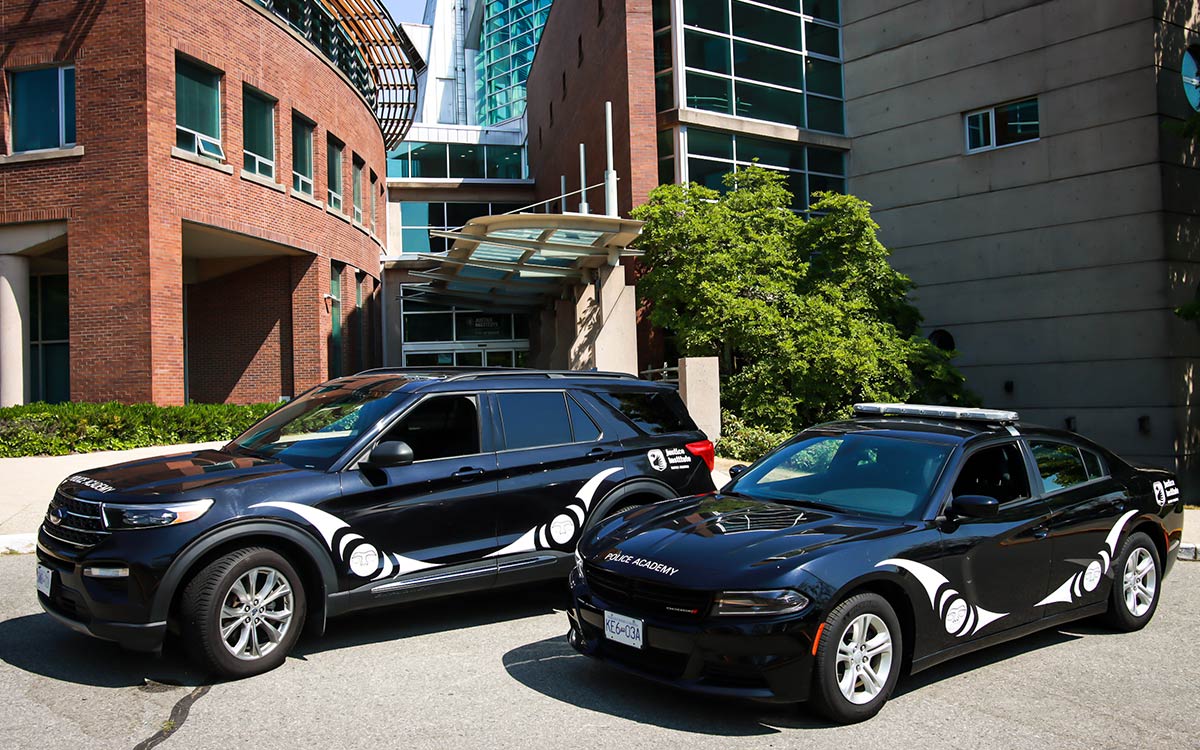New design a visual reminder of Police Academy and JIBC commitment to Indigenization
The Justice Institute of British Columbia (JIBC) Police Academy unveiled new Indigenous artwork on its fleet of training vehicles recently, a visual representation of the Institute and academy’s commitment to Indigenization.
xʷməθkʷəy̓əm (Musqueam) artist Kamryn Sparrow was commissioned to create the artwork as part of JIBC’s strategic plan commitment to living Indigenous ways of thinking, being, relating and doing. A key strategy of this commitment is to ensure campuses include high-visibility art and items symbolizing our commitment to Indigenous education.
In her artist’s statement, Sparrow described her work as featuring: “Two Salish eyes with two centre faces to symbolize moving from one journey to the next. With the protection of the Salish eye to protect/guide the students moving from one part of their life to the next. More visual representation to see into the next part of their journey, more clarity moving forward.”
“I am pleased to unveil this new design on our fleet of Police Academy training vehicles which will serve as a visual signal of our commitment to Indigenization and putting Truth and Reconciliation into action as part of our training of B.C. municipal police recruits,” said Superintendent Jennifer Keyes, Director of the JIBC Police Academy.
The unveiling ceremony was led by JIBC Elder-in-Residence Caroline Buckshot at JIBC’s New Westminster campus.
“The origin and significance of the relationship with Indigenous People and the Police historically was not about mutual respect and trust,” said Elder Buckshot. “JIBC and the Police Academy are making strides to Reconcile that history, acknowledge, correct and repair the relationship and this new Indigenous artwork is a step towards that better understanding.”
The Police Academy initiative, which saw the small fleet of training vehicles adorned with the new artwork, was done in consultation with the JIBC Office of Indigenization. The academy’s commitment to its relationships with Indigenous communities includes incorporating Indigenous cultural safety training and Indigenous perspectives and teachings into the police recruit training program.
The JIBC Police Academy trains recruits for all municipal police departments in B.C., Metro Vancouver Transit Police, and the Stlʼatlʼimx Tribal Police Service. Officers from these departments serve diverse communities across the province, stretching from Vancouver Island to the Lower Mainland, to Nelson.




